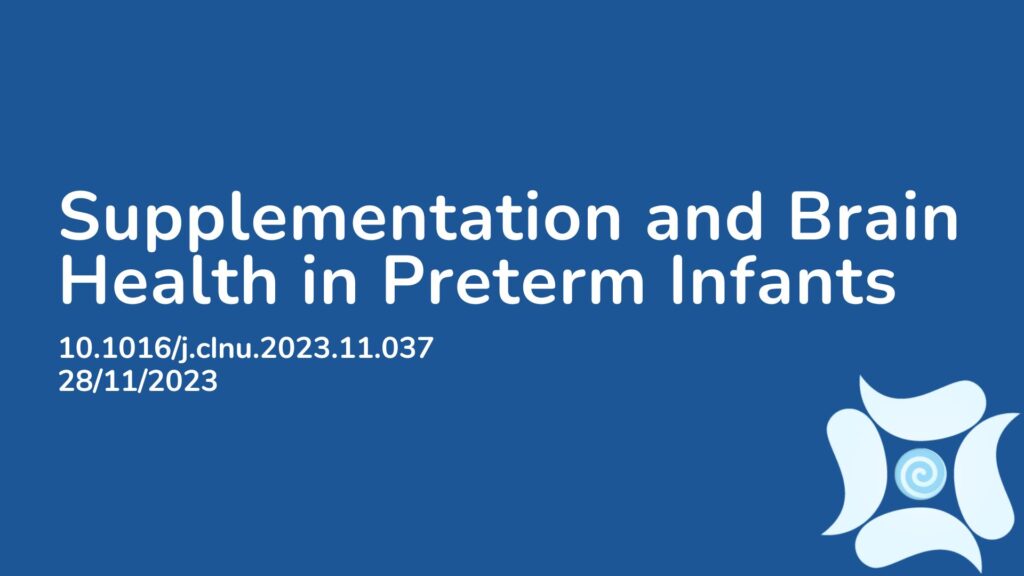Summary:
Arachidonic acid (ARA) and docosahexaenoic acid (DHA) play vital roles in brain health and exhibit anti-inflammatory properties. For very preterm infants who lacked the supply of these fatty acids, it is unknown whether supplementation can fill this gap. This double-blind, randomized controlled trial study aimed to investigate whether early supplementation with ARA and DHA in preterm infants enhanced brain health, measured through MRI screening. This paper includes infants born before 29 weeks gestational age and were given either ARA and DHA, or medium chain triglycerides. Supplementation commenced on the second day of life and continued until 36 weeks postmenstrual age, which is the gestational age plus the days after birth. The outcomes were measured via brain imaging. The results showed that supplementation with ARA and DHA, administered at the correct dose picked specifically for the infant, enhances brain cell maturation compared to control treatment. However, further investigations are warranted to determine any other potential functional benefits.
Abstract:
Background: Arachidonic acid (ARA) and docosahexaenoic acid (DHA) are important structural components of neural cellular membranes and possess anti-inflammatory properties. Very preterm infants are deprived of the enhanced placental supply of these fatty acids, but the benefit of postnatal supplementation on brain development is uncertain. The aim of this study was to test the hypothesis that early enteral supplementation with ARA and DHA in preterm infants improves white matter (WM) microstructure assessed by diffusion-weighted MRI at term equivalent age. Methods: In this double-blind, randomized controlled trial, infants born before 29 weeks gestational age were allocated to either 100 mg/kg ARA and 50 mg/kg DHA (ARA:DHA group) or medium chain triglycerides (control). Supplements were started on the second day of life and provided until 36 weeks postmenstrual age. The primary outcome was brain maturation assessed by diffusion tensor imaging (DTI) using Tract-Based Spatial Statistics (TBSS) analysis. Results: We included 120 infants (60 per group) in the trial; mean (range) gestational age was 26+3 (22+6 – 28+6) weeks and postmenstrual age at scan was 41+3 (39+1 – 47+0) weeks. Ninety-two infants underwent MRI imaging, and of these, 90 had successful T1/T2 weighted MR images and 74 had DTI data of acceptable quality. TBSS did not show significant differences in mean or axial diffusivity between the groups, but demonstrated significantly higher fractional anisotropy in several large WM tracts in the ARA:DHA group, including corpus callosum, the anterior and posterior limb of the internal capsula, inferior occipitofrontal fasciculus, uncinate fasciculus, and the inferior longitudinal fasciculus. Radial diffusivity was also significantly lower in several of the same WM tracts in the ARA:DHA group. Conclusion: This study suggests that supplementation with ARA and DHA at doses matching estimated fetal accretion rates improves WM maturation compared to control treatment, but further studies are needed to ascertain any functional benefit.
Article Publication Date: 28/11/2023
DOI: 10.1016/j.clnu.2023.11.037



